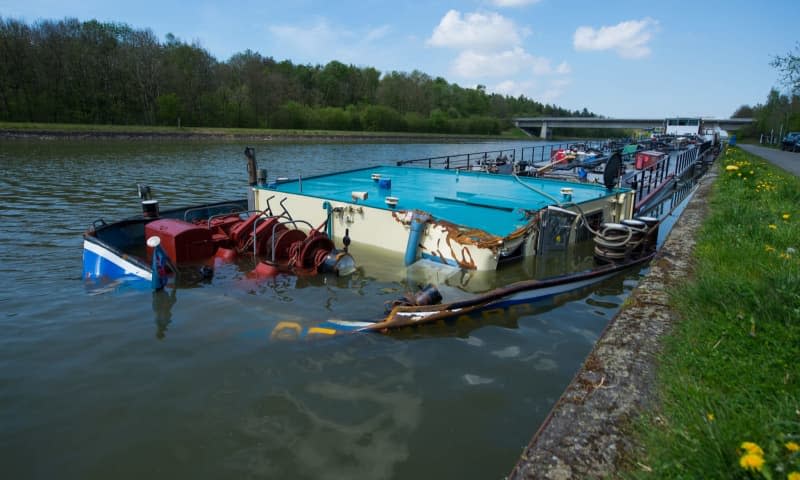Report: Far fewer ships sank, but growing numbers of pirate attacks

Although the number of vessels which sank around the world fell to a record low last year, the threat of piracy is increasing, according to a new report published by German insurance company Allianz Commercial on Wednesday.
The annual report on shipping risks stated that only 26 larger vessels sank worldwide last year, a decline of almost a third compared to the year before and a drop of over 70% in a ten-year comparison.
According to Allianz Commercial, marine traffic has recently become much safer. However, the threat of piracy is increasing.
Last year, there were 120 known pirate attacks worldwide, five more than in 2022.
The report said the waters of the western African Gulf of Guinea are the most dangerous region for pirate attacks, followed by the Strait of Singapore in Southeast Asia.
According to the report, a significant concern is a resurgence of piracy in the Horn of Africa, where Somali pirates hijacked a ship in December 2023 for the first in six years, with subsequent attacks occurring since then.
Allianz marine experts suggested that Somali pirates have been emboldened by the many attacks carried out by Houthi militias on merchant ships in the Red Sea since the Gaza war began last October.
The ongoing wars in Gaza and Ukraine also have an indirect effect on the safety of shipping by creating or favouring consequential dangers.
As one example, the authors cite an international "shadow fleet" of an estimated 600 to 1,400 oil tankers exporting Russian oil that have been involved in at least 50 incidents so far, including fires, collisions and oil spills.
"These are mostly older, poorly maintained ships that are operated outside of international regulations and often without adequate insurance," said Justus Heinrich, Head of Marine Insurance in Germany and Switzerland at Allianz Commercial.
"This harbours serious environmental and safety risks."

